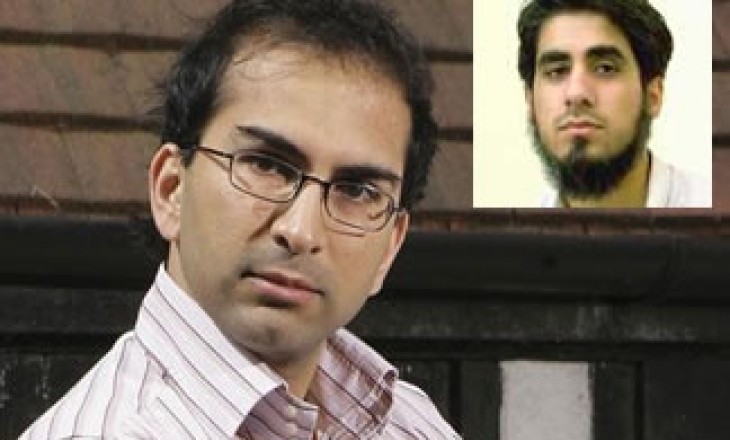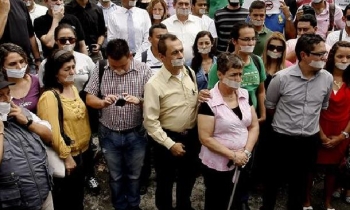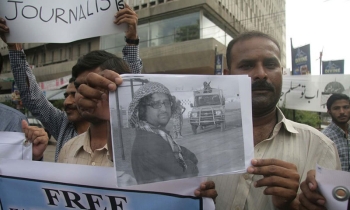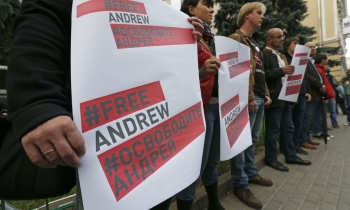A journalist won a legal test case over the confidentiality of reporters' contacts after judges ruled against a court order seeking all his notes for a biography of a former Islamist radical.
The order had required London reporter Shiv Malik to give police all his notes and source material for a book he was writing on Hassan Butt, a British-born Muslim who spent 10 years inside radical Islamist groups, says a Reuters report.
Civil liberties campaigners had feared the so-called "production order", obtained by Greater Manchester Police under anti-terrorism laws, could undermine the future of investigative journalism. Judges at the High Court in London said the order should be reconsidered and set a date later this month to decide what source material it should apply to.
Malik said the ruling was a "victory for common sense". He told Reuters, "The High Court has agreed with the substance of our case, that investigative journalists should be allowed to maintain the confidentiality of their sources and their materials."
Malik said he would fight the revised order, which he expected to be limited to his notes relating to Butt. "It's a partial victory in our favour, we have yet to battle out the rest," he said. "At least the ground has now been settled for what definitely should not be given over."
It was the first High Court test of a production order obtained under the 2000 Terrorism Act.
The National Union of Journalists (NUJ), which supported the 100,000 pound costs of the case along with the Sunday Times, said police had to respect the special nature of journalistic material. "This ruling sends a clear signal to the police that they can't see journalists as simply another tool of intelligence gathering," said NUJ Secretary Jeremy Dear.
Greater Manchester Police said its priority was public protection. "We have a responsibility to investigate terrorism and we will use all appropriate legislation to do that," it said. The force is seeking similar orders against four other media organisations, including the BBC, US television network CBS and the Sunday Times.
The Guardian had some more on the court's observations:
In handing down the written judgment, Lord Justice John Dyson, one of the three judges on the judicial review panel, said the courts needed to protect journalism as well as fight terrorism.
"A balance has to be struck between the protection of confidential material of journalists and the interest of us all in facilitating effective terrorist investigations. It is for the court to strike that balance," he said.
"It is for the police to satisfy the court that the balance should be struck in favour of making a production order."
Dyson added that any limitation to a journalist's rights to freedom of expression, including the need to protect sources, "must be applied with caution and convincingly established".
"Where, as in the present case, such material is in the possession of a journalist, there is a potential clash between the interests of the state in ensuring the police are able to conduct terrorist investigations as effectively as possible and the rights of the journalist to protect his or her confidential sources," he said.
"Important though these rights of a journalist unquestionably are, they are not absolute. Parliament has decided that the public interest in the security of the state must be taken into account."
An Associated Press (AP) creed had some backgroun material:
Malik had gone to court to try to block the order that he hand over all his source material on Hassan Butt, the subject of Malik's upcoming book "Leaving al-Qaeda: Inside The Mind of a British Jihadist."
Butt became well known after the Sept. 11 attacks as a mouthpiece for the now-banned al-Muhajiroun movement, and boasted of recruiting 200 Muslims to fight in Afghanistan for the Taliban. He now says he has renounced radical Islam, and claims many of his earlier boasts were exaggerated.










